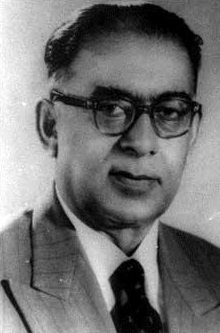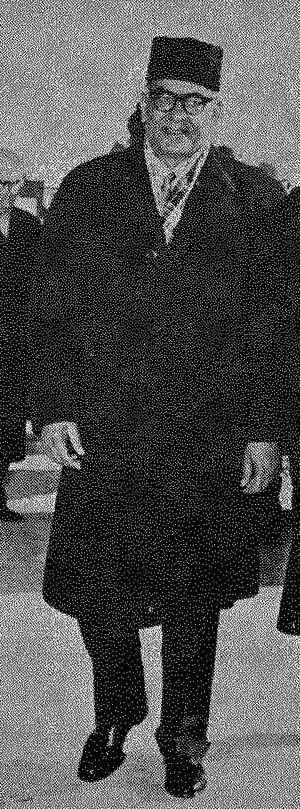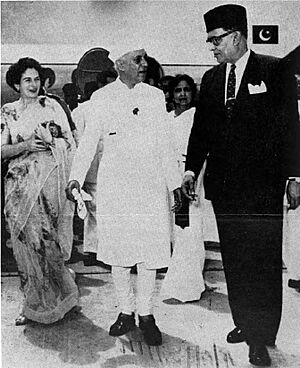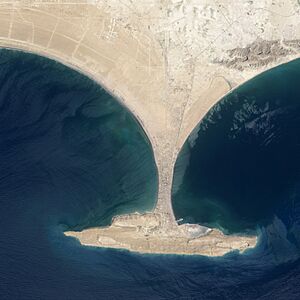Feroz Khan Noon facts for kids
Quick facts for kids
Sir Malik Feroz Khan Noon
|
|
|---|---|
| فیروز خاں نون ফিরোজ খান নূন |
|
 |
|
| 7th Prime Minister of Pakistan | |
| In office 16 December 1957 – 7 October 1958 |
|
| President | Iskander Mirza |
| Preceded by | Ibrahim Ismail Chundrigar |
| Succeeded by | Ayub Khan (as president) Nurul Amin (1971) |
| Minister of Defence | |
| In office 16 December 1957 – 7 October 1958 |
|
| Preceded by | Mumtaz Daultana |
| Succeeded by | Muhammad Ayub Khuhro |
| Minister of Foreign Affairs | |
| In office 12 September 1956 – 7 October 1958 |
|
| Prime Minister | Huseyn Shaheed Suhrawardy |
| Preceded by | Hamidul Huq Choudhury |
| Succeeded by | Manzur Qadir |
| Chief Minister of Punjab | |
| In office 3 April 1953 – 21 May 1955 |
|
| Governor | Mian Aminuddin Habib Ibrahim Rahimtoola Mushtaq Ahmed Gurmani |
| Preceded by | Mumtaz Daultana |
| Succeeded by | Abdul Hamid Khan Dasti |
| Governor of East Bengal | |
| In office 31 March 1950 – 31 March 1953 |
|
| Chief Minister | Nurul Amin |
| Preceded by | Frederick Chalmers Bourne |
| Succeeded by | Chaudhry Khaliquzzaman |
| Permanent Representative of India to the United Nations | |
| In office 1945–1946 |
|
| Preceded by | Position established |
| Succeeded by | Samar Sen |
| Minister of Defence in Viceroy's Executive Council | |
| In office 1942–1945 |
|
| Governor General | The Marquess of Linlithgow Archibald Wavell |
| Minister of Labour in Viceroy's Executive Council | |
| In office 1941–1942 |
|
| Governor General | The Marquess of Linlithgow |
| Succeeded by | B. R. Ambedkar |
| High Commissioner of India to the United Kingdom | |
| In office 1936–1941 |
|
| Preceded by | Bhupendra Nath Mitra |
| Succeeded by | Azizul Haque |
| Provincial Minister of Punjab for Education | |
| In office 1931–1936 |
|
| Governor | Malcolm Hailey Geoffrey Fitzhervey de Montmorency Herbert William Emerson Sikandar Hayat Khan |
| Provincial Minister of Punjab for Local Government | |
| In office 1927–1931 |
|
| Governor | Malcolm Hailey Geoffrey Fitzhervey de Montmorency |
| Preceded by | Fazl-i-Hussain |
| Member of Punjab Legislative Council | |
| In office 1921–1936 |
|
| Personal details | |
| Born | 7 May 1893 Hamoka, Punjab, British India (now in Punjab, Pakistan) |
| Died | 9 December 1970 (aged 77) Nurpur Noon, Punjab, Pakistan |
| Political party | Republican Party (1955–1958) |
| Other political affiliations |
Muslim League (1947–1955) All-India Muslim League (1945–1947) Unionist Party (1921–1945) |
| Spouse | Viqar un Nisa Noon |
| Children | Nur Hayat Noon (son) Manzoor Hayat Noon (son) |
| Alma mater | University of Oxford |
Sir Malik Feroz Khan Noon (7 May 1893 – 9 December 1970) was an important Pakistani politician. He is best known as Feroze Khan. He served as the seventh Prime Minister of Pakistan from December 1957 to October 1958.
Feroz Khan Noon studied law in England. Before Pakistan was created, he was a top diplomat for India in the United Kingdom. He also advised British Prime Minister Winston Churchill on military matters.
Noon was one of the Founding Fathers of Pakistan. He played a key role in the talks that led to Pakistan becoming an independent country on 14 August 1947. This happened after a big movement led by Muhammad Ali Jinnah.
Contents
Early Life and Education
Where Was Feroz Khan Noon Born?
Feroz Khan Noon was born on 7 May 1893. His birthplace was Hamoka village in the Khushab District of Punjab, which was then part of British India. His family was a wealthy and respected Punjabi family. They were known as Muslim Rajputs and owned a lot of land. His father, Nawab Malik Sir Muhammad Hayat Khan Noon, was also a politician.
His Schooling and College Years
After his early schooling, Noon went to Aitchison College in Lahore. In 1912, he traveled to England to study. He lived with a family there before being accepted into Wadham College at Oxford University.
Noon graduated from Oxford in 1916 with a degree in history. He loved playing soccer and field hockey. While at university, he focused on his studies and learning about English culture. He really admired Britain throughout his life.
After Oxford, Noon moved to London to take his law exams. He became a qualified lawyer (barrister) in 1917 and then returned to India.
Political Career
Starting as a Lawyer and Politician in India
Noon started his law career in India in 1918. He first worked at the District Court in Sargodha, then at the Lahore High Court. He became well-known for his work in civil law.
In 1920, Noon entered politics. He was elected to the Punjab Legislative Assembly as a member of the Unionist Party. From 1927 to 1931, he served in the cabinet of the Governor of Punjab. He was in charge of local government matters.
Between 1931 and 1936, Noon continued to serve in different government roles. He was a minister for health and education under various Governors.
In the 1930s, Noon received several honors. He was made an Officer of the Venerable Order of Saint John in 1932. He was also knighted in 1933, which meant he could use "Sir" before his name. Later, he was made a Knight Commander of the Order of the Indian Empire and the Order of the Star of India.
Diplomacy During World War II and the Pakistan Movement
In 1936, Noon became the High Commissioner of India to the United Kingdom. This was a very important diplomatic role.
During World War II, which started in 1939, Noon supported Britain's efforts against its enemies. He helped arrange for the British Indian Army to be sent to Africa and the Middle East. He also helped convince British Prime Minister Winston Churchill that Indian Muslims supported British rule.
Later, Noon joined the Viceroy's Executive Council as a labor minister. He played a key role in discussions about India's future. From 1944 to 1945, he worked in the British War Department, representing British India. In 1945, he became India's first Permanent Representative of India to the United Nations, attending the first UN meeting in San Francisco.
By late 1945, it was clear that Britain would soon leave India. Noon then joined the All-India Muslim League, which was working for the creation of Pakistan. His decision encouraged many others to join the Muslim League. This helped the Muslim League win elections in Punjab.
Governor of East Bengal and Chief Minister of Punjab
After Pakistan was created in 1947, Noon became a member of Pakistan's first National Assembly. In October 1947, Muhammad Ali Jinnah, who was now Pakistan's Governor-General, sent Noon to Saudi Arabia and other Muslim countries. His job was to introduce the new country of Pakistan and explain why it was created. He also sought support from these countries, and he did this successfully.
In 1950, Prime Minister Liaquat Ali Khan appointed Feroz Noon as the Governor of East Bengal (now Bangladesh). He was more interested in the politics of Punjab and later became its Chief Minister in 1953.
Foreign Minister in a Coalition Government
In 1955, Noon helped create the Republican Party. He became its leader. He joined a government made up of three parties: the Awami League, the Muslim League, and the Republican Party. In this government, he served as the Foreign Minister.
From 1956 to 1957, Noon tried to talk with India about the Kashmir problem, but he could not find a solution.
Prime Minister of Pakistan (1957-1958)
After two previous Prime Ministers resigned, Feroz Khan Noon became the next choice from the three-party government. He became Prime Minister on 16 December 1957. He formed a government with the support of several political parties.

Getting Gwadar for Pakistan
As Prime Minister, Noon led important talks with the Sultanate of Muscat and Oman. These talks were about getting the area of Gwadar for Pakistan. On 8 September 1958, Gwadar officially became part of Pakistan. Pakistan paid 3 million US dollars for it.
Noon believed that having Gwadar in foreign hands was like living in a house where a stranger occupied a back room. His wife, Viqar-un-Nisa Noon, also played a big part in this. She visited London in 1956 to talk to the British Prime Minister and members of the British Parliament. She asked them to help transfer Gwadar to Pakistan.
Noon did not support President Iskander Mirza's plan to be re-elected. On 7 October 1958, President Mirza took control of the government, ending Noon's time as Prime Minister.
Later Life and Death
After leaving politics in 1958, Noon became a writer. He wrote five books about the history of India, law, and politics in Pakistan.
Noon was married to Viqar-un-Nisa Noon, who was from Austria. She was also a well-known politician and social worker. Feroz Khan Noon passed away on 7 December 1970. He is buried in his family village of Nurpur Noon in Sargodha District, Pakistan.
Books Written by Feroz Khan Noon
- Wisdom From Fools (1940) - short stories for children.
- Scented Dust (1941) - a novel.
- India (1941)
- Kashmir (1957)
- From Memory (1966) - his autobiography.
See also
- Politics of Pakistan
Images for kids
 | James Van Der Zee |
 | Alma Thomas |
 | Ellis Wilson |
 | Margaret Taylor-Burroughs |




